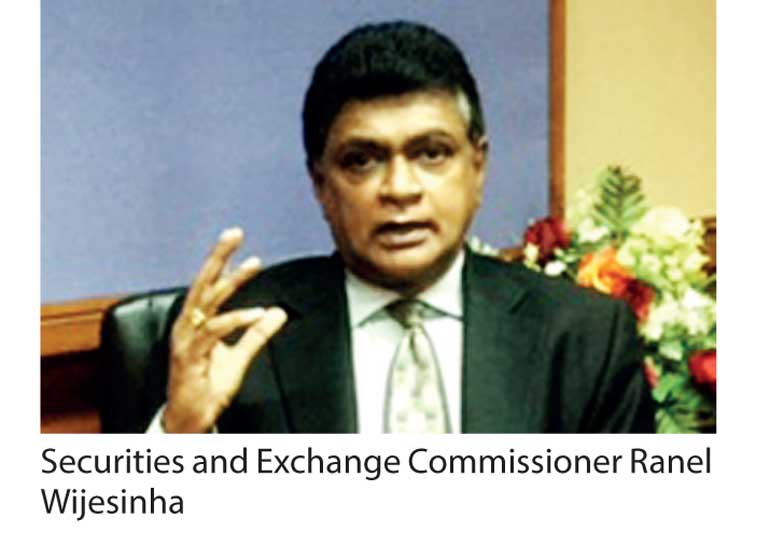Friday Feb 27, 2026
Friday Feb 27, 2026
Friday, 23 June 2017 00:10 - - {{hitsCtrl.values.hits}}
 Speaking to the Daily FT, Securities and Exchange Commissioner Ranel Wijesinha said it was refreshing to witness the resurgence of the capital market in Sri Lanka, stressing it was incumbent that “stakeholders collectively ensure that this momentum is maintained and a sustainable robustness is achieved.”
Speaking to the Daily FT, Securities and Exchange Commissioner Ranel Wijesinha said it was refreshing to witness the resurgence of the capital market in Sri Lanka, stressing it was incumbent that “stakeholders collectively ensure that this momentum is maintained and a sustainable robustness is achieved.”
The following are excerpts.
It is refreshing indeed to witness the resurgence of the capital market in Sri Lanka over the recent several weeks. In the larger national interest, it is compellingly necessary that we stakeholders collectively ensure that this momentum is maintained and a sustainable robustness is achieved. To my mind, it is a collective responsibility of the regulator - the SEC, the CSE, brokers, investors, unit trusts and margin providers and all other market participants.
What is noteworthy is that the cumulative net foreign inflow or the value of purchases of shares by foreign portfolio investors exceeds the sales by them in 2017 by approximately Rs. 20.8 billion. This is in the secondary market alone. If the raising of capital through recent rights issues and initial public offerings are included, this net foreign inflow exceeds Rs. 30 billion.
This is a clear indication that the capital market and the regulator the SEC and CSE, which in a certain period prior to December 2014, had lost credibility, has now regained respect and re-earned the trust and confidence of investors. But the regulator could not have done it alone, and the role of compliant brokers and market participants must be appreciated. Local investors are demonstrating a keen interest in quoted equity given the strong fundamentals reported by key blue chips, diversified conglomerates and even mid-sized public limited companies. It is about time that these resilient corporates are recognised once again.
There is now a sound basis for further capital raising through IPOs by the private sector, which will ease the pressure on banks and reduce the downside risks of high leverage in project equity or debt structuring. This also means new investment, employment in start-ups, expansion and the modernisation of existing enterprise.
Government must seize this opportunity to take firm decisions, with time bound action plans, to seek consensus on offering to the market, GOSL stakes in existing quoted PLCs, whole or part listings of state-owned enterprises, which have been identified for such listings for some time. The Government must demonstrate the political will to make the best use of this opportunity and thereby help enhance and sustain the momentum of the market.
As I have often stated publicly over the decades, windows of opportunity do not remain open to perpetuity. Many global, regional and local economic factors can impact the routine activity of purchase and sale in any stock market. Some factors are beyond our control, yet others are well within, and hence this is where we all have to be responsible. The regulator and the regulated, government policy and of course the direct and indirect marketing and communications by the Government, whether it is about economic or fiscal policy, the Government’s decision-making on reform of SOEs, on listing Government stakes or its response to floods or issues such as SAITM.